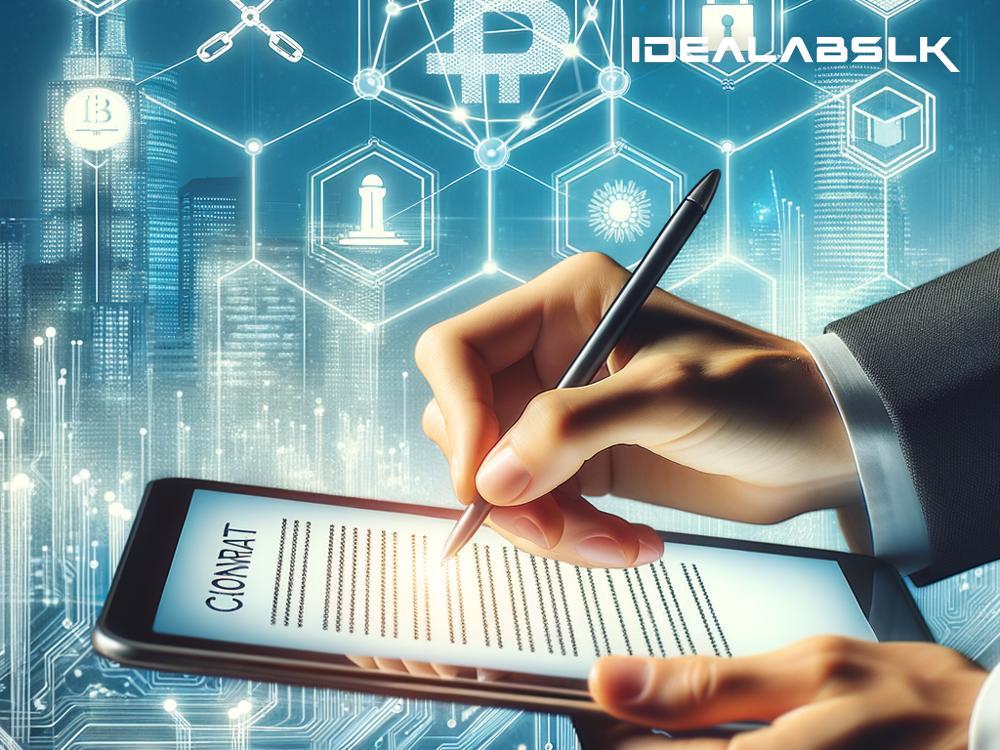The Future of Home Sweet Home: A Glimpse into Blockchain in Automated Real Estate Leasing
Picture this: it's 2023, and the journey of finding a new apartment or leasing out your property has transformed. It's straightforward, quick, and doesn’t have you tangled in paperwork or waiting days (or, sometimes, weeks) for approvals. Sounds like a dream? Well, thanks to blockchain technology, this dream is quickly becoming a reality in the world of real estate.
First things first, let's demystify blockchain. In simple terms, blockchain is a technology that allows data to be stored globally on thousands of servers, making it nearly impossible for this data to be controlled by any single entity. This makes everything more secure and transparent. Initially famed for being the backbone of cryptocurrencies like Bitcoin, blockchain is now making its mark across various industries, including real estate.
Now, let’s dive into how blockchain is revolutionizing the process of leasing real estate, making it automated, more secure, and far less cumbersome.
1. Say Goodbye to Mountains of Paperwork:
Traditionally, leasing real estate involved a hefty amount of paperwork, from contracts to background checks, and the list goes on. Blockchain is changing this through smart contracts. Imagine a digital contract that can self-execute and self-verify every step of the leasing process, from ensuring the tenant has paid the deposit to confirming the landlord has handed over the keys. This means no more sifting through files or fretting over lost documents. Everything is stored securely on the blockchain, accessible and verifiable at any time.
2. Faster Transactions, Happier People:
One of the most time-consuming aspects of leasing real estate is the transaction process. With blockchain, transactions occur in real-time. Since it's a decentralized system, the need for middlemen such as brokers or banks is greatly reduced. This not only speeds up the process but also cuts down on extra fees, making leasing more cost-effective for both landlords and tenants.
3. Enhanced Security and Trust:
The transparent nature of blockchain ensures a level of security and trust that was previously hard to achieve in real estate transactions. Every transaction on a blockchain is encrypted and linked to the previous one, creating an unbreakable chain of custody for every document. This means that once a record is made, it cannot be altered or deleted, ensuring the integrity of the leasing agreement and protecting against fraud.
4. A Global Marketplace:
Blockchain is not bound by geographical constraints, making it easier for landlords to lease their properties to international tenants, and vice versa. This global marketplace not only increases opportunities for landlords to find tenants but also for tenants to find their dream homes, anywhere in the world, without worrying about traditional banking systems and currency exchanges.
5. Efficient Property Management:
The use of blockchain extends beyond just leasing; it also simplifies property management. For instance, utility payments, maintenance requests, and even access control to the property can be managed through smart contracts. This means less hassle for both landlords and tenants and a more enjoyable leasing experience.
Embracing the Change:
While the integration of blockchain into real estate is still in its early stages, its potential to streamline and secure the leasing process is undeniable. As the technology becomes more widespread, those who adapt will find themselves at the forefront of a more efficient, transparent, and accessible real estate market.
The future of automated real estate leasing promises a shift from the traditional, often frustrating process to one that is more aligned with the speed and convenience we’ve come to expect in the digital age. The message is clear: blockchain is not just a buzzword; it’s paving the way for a revolution in how we lease real estate. Welcome to the future of home sweet home!

